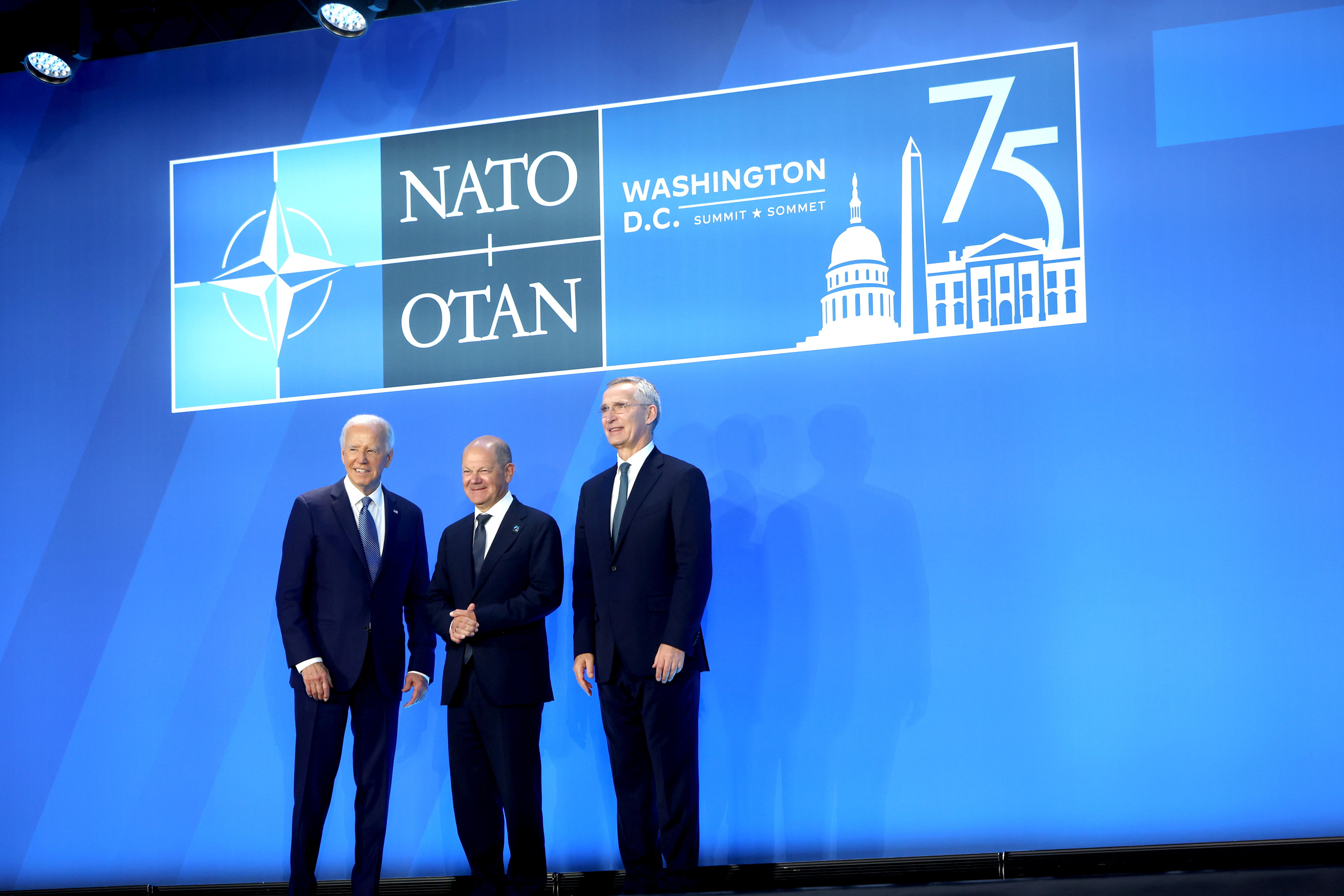NATO 2024
Strategic reorientation for a new era

Berlin and Washington agree to station long-range missiles in Germany for the first time since the Cold War.
© picture alliance / Sipa USA | Sipa USAAt 75 years of age, NATO is looking ahead to the future. Amid Russia’s ongoing war of aggression against Ukraine, there has been a fundamental reorganisation of the Alliance to make it fit for purpose in a new geopolitical era. The accession of Finland and Sweden, the refocusing on deterrence and collective defence, the increase in defence spending across the alliance, the coordinated military support for Ukraine and the increased military presence on NATO's Eastern Flank are all signs of the alliance's ability to react quickly to the changing security landscape. The German government decided on a novelty of its own, namely the permanent stationing of an entire brigade in Lithuania –a clear sign of the seriousness and determination of NATO members.
In this context, NATO Allies met in Washington D.C. from 9 to 11 July for the 35th NATO Summit. The gathering not only marked the 75th anniversary of the military alliance, but also signified the transition from reactive measures to the Russian war against Ukraine to a more strategic orientation. The NATO heads of state and government agreed on a number of long-term actions that will make the alliance more European and more sustainable.
German leadership, more Europe?
Since the start of reporting on the 2024 ‘super election year’, every public debate has centred on the impact that the US presidential election in November 2024 will have on the future of NATO. Will a Trump 2.0 erode NATO or is it evident the USA in any case already has different priorities? The fact is, much of NATO's work has so far been under US leadership. This seems to be different now, as responsibilities are being redistributed – for example with the establishment of the Ukraine Command in Wiesbaden, Germany. This means that NATO is taking over the coordination of military aid for Ukraine, a task that was previously in Ramstein and under US leadership.
Another important decision taken at the summit is the stationing of US land and sea-based medium and long-range missiles in Germany. This measure considerably increases NATO's deterrent capability and closes a significant capability gap vis-à-vis Russia. Europe still lacks ground-based cruise missiles with a range of over 500 kilometres. That is why, in addition to this announcement, Germany, France, Italy and Poland have signed a declaration of intent to develop these missiles together in the near future.
Also announced was additional support for Ukraine, NATO's pledge to expand industrial capacity and two agreements for military mobility corridors in the Nordic countries and Southeast Europe. The 75th NATO Summit could thus go down in history as the beginning of a new era –an era characterised by increased cooperation, enhanced defence preparedness and equal responsibilities between the transatlantic and European partners.
Repositioning is occurring, also in terms of various leadership roles. From Scholz's perspective, the announcement of the bilateral agreement between Germany and the USA on the stationing of US missiles in Germany also appeared to be essentially aimed at Germany's positioning within the alliance. Important, without a doubt. However, the address to Germany's own citizens is still missing.
Ukraine on the irreversible membership path
Less concrete, but perhaps even more important, is the consolidation of NATO's geopolitical positioning. At the summit, the heads of state and government formally declared that Ukraine is on an "irreversible path" to membership of the alliance. This is an important assurance of protection once the Russian war against Ukraine is finally over. The final declaration also called out China as a "decisive supporter" of Russia's war through its so-called "no limits" partnership and its extensive support for Russia's defence industry. This is the strongest message yet from the alliance and reflects growing concerns about Beijing's global role.
The 75th NATO Summit was a celebration of the strength of the transatlantic alliance and an opportunity to refocus after several years of catching up with new realities. Allies have shown that they are ready to take on new responsibilities, close security gaps and chart new directions for the years ahead. NATO is thus equipped for the future as the most important security guarantor in the transatlantic area.

